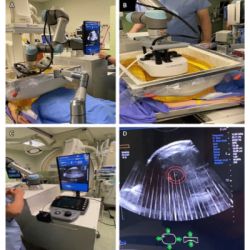Months ago, concerns were raised about the deteriorating wait times for critical medical imaging in British Columbia, warning of potential consequences such as an influx of cancer cases. Now, radiologists in the province are revealing that privately-run clinics, responsible for half of the screenings, are facing severe underfunding that may result in their closure. This situation would further exacerbate the already lengthy waiting periods for patients.
The BC Radiological Society, in an interview with CTV News, explains that the rising costs of equipment, technical fees, and wages, largely influenced by inflation, have taken a toll on the clinics. However, the provincially-set rate for their services has only increased by 5 percent, making it financially unsustainable for the clinics to absorb these additional expenses. Dr. Charlotte Yong-Hing, the president of the organization, emphasizes that the clinics are operating at a loss and that urgent action is needed.
The consequences of clinic closures would be dire, with patients already experiencing wait times of six to nine months for biopsies. Diagnosis of cancer would be delayed, resulting in patients being diagnosed at later stages when treatment becomes more challenging. The president of the BC Radiological Society highlights the efficiency of private clinics compared to health authority-run medical imaging labs. Should these clinics shut down, the publicly run system would struggle to accommodate the overwhelming demand, leading to dangerously long waits for mammograms and breast cancer screening.
CTV News has reached out to the Ministry of Health for comment on the situation, but there has been no response thus far. It remains unclear whether the government plans to provide temporary stop-gap funding, as it did for family doctors last year, or if it would consider acquiring the clinics, similar to previous actions with other medical imaging providers. Both options are possibilities based on past interventions.
The impact of the underfunding and potential clinic closures extends beyond cancer diagnosis. Medical imaging plays a crucial role in diagnoses and surgeries. In many cases, patients cannot even be placed on surgical waitlists until they have undergone necessary radiological examinations. The shortage and delays in medical imaging create a bottleneck in the healthcare system, affecting downstream healthcare services. Dr. Daniel Jenkin, past president of the General Surgeons of B.C., emphasizes the need to address the waitlists for medical imaging as a priority to alleviate the cascading effects on overall healthcare.
These concerns have been raised by the opposition party, BC United, for several months, even prior to the recent €402-million ($440-million) investment in cancer care, which aimed to enhance diagnostic services. Health critic Shirley Bond urges the government to acknowledge the crisis at hand and take immediate action. She expresses deep concern regarding the potential closure of clinics and interruptions to patient care while the government works on finding a solution to sustain diagnostic services. Bond emphasizes that delays in medical imaging can have life-or-death consequences, highlighting the critical role of imaging in saving lives. She calls for the retention and expansion of services to meet the growing healthcare demands.
Source: CTV News
Image Credit: iStock



























